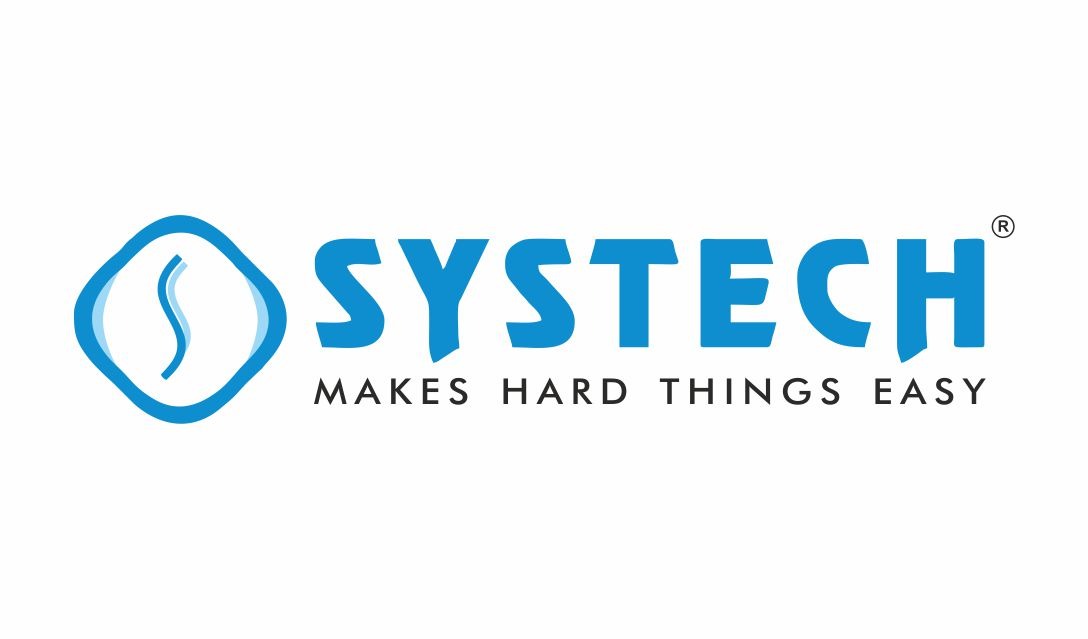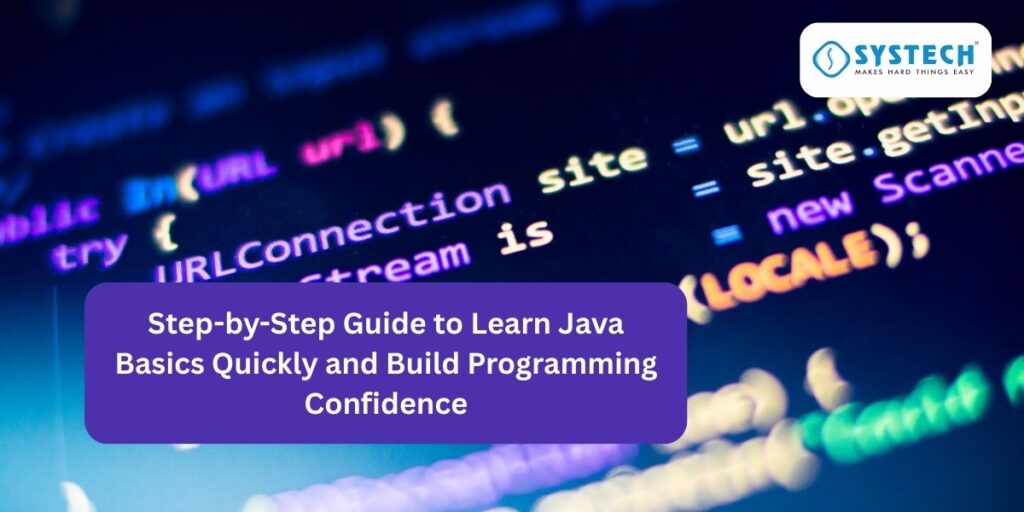Table of Contents
Introduction:
Starting your programming journey can feel like stepping into an unknown world filled with technical terms and complex code. Many beginners lose motivation because they don’t know where to start or how to break things down step by step. This is where Java basics come in. Java is widely recognised as an easy-to-learn and beginner-friendly programming language, making it perfect for aspiring developers who want structured learning and career growth.
By mastering core Java concepts, you’ll not only tackle real-world problems with confidence but also build a strong foundation for advanced technologies. This guide will show you how to approach Java fundamentals for beginners, practice with Java syntax and examples, and create meaningful projects inspired by practical, real-life scenarios.
What You’ll Learn
- Understand the stepwise approach to introduction to Java programming
- Learn the most important core Java concepts with practical examples
- Practice Java syntax and examples using real-world
- Gain confidence in working with Java fundamentals for beginners
- Discover how projects accelerate your learning and career growth
Why Start with Java Basics
Jumping directly into complex coding frameworks can overwhelm beginners. Instead, focusing on Java basics provides a logical, structured pathway.
Benefits of Learning Java Early:
- Clear Syntax: Easier to write, read, and understand
- OOP Foundation: Object-Oriented Programming is key for future growth
- Industry Adoption: Used in enterprise applications, Android apps, and cloud systems
- Strong Community: Multiple resources, discussions, and peer support
If you’re a beginner, learning Java fundamentals first helps you build a strong foundation and ensures you won’t feel intimidated by more advanced code later.
Code Real Projects with Java!
Step 1: Learn Core Java Concepts
Every programmer must start by understanding core Java concepts like data types, classes, objects, and control structures. To make this relatable, imagine a Systech Student Registration System where each student is represented as an object.
class Student {
String name;
String course;
int duration; // in months
// Constructor
Student(String n, String c, int d) {
name = n;
course = c;
duration = d;
}
void displayDetails() {
System.out.println("Student Name: " + name);
System.out.println("Enrolled Course: " + course);
System.out.println("Course Duration: " + duration + " months");
}
public static void main(String args[]) {
Student s1 = new Student("Alice", "Java Basics at Systech", 3);
s1.displayDetails();
}
}
Output:
text
Student Name: Priya
Enrolled Course: Java Basics at Systech
Course Duration: 3 months
This example makes Java fundamentals for beginners tangible and builds understanding of classes, constructors, and methods.
Step 2: Practice Java Syntax and Examples
Syntax is like the grammar of a programming language. To grasp Java syntax and examples, let’s build a Systech Course Information Program.
public class Course {
String courseName = "Core Java Concepts";
double fee = 15000;
public void showCourseDetails() {
System.out.println("Course Name: " + courseName);
System.out.println("Course Fee: " + fee);
}
public static void main(String[] args) {
Course systechCourse = new Course();
System.out.println("Welcome to Systech Group!");
systechCourse.showCourseDetails();
}
}
Output:
text
Welcome to Systech Group!
Course Name: Core Java Concepts
Course Fee: 15000.0
This makes Java basics readable and connects syntax rules to actual coding practice.
Step 3: Work on Introduction to Java Programming Projects
Now that you can code small programs, the best way to grow is through hands-on projects. Practical assignments help you apply core Java concepts and strengthen your programming skills.
Suggested Beginner Projects:
- Fee Calculator: Take input as course fee and number of instalments and calculate total payment.
- Attendance Tracker: Create a system that marks attendance for students.
- Student Performance Report: Use loops and conditions to calculate averages and assign grades.
Example: Fee Calculator
import java.util.Scanner;
public class FeeCalculator {
public static void main(String[] args) {
Scanner sc = new Scanner(System.in);
System.out.print("Enter Course Fee: ");
double fee = sc.nextDouble();
System.out.print("Enter Number of Instalments: ");
int instalments = sc.nextInt();
double amountPerInstalment = fee / instalments;
System.out.println("Each instalment amount: " + amountPerInstalment);
}
}
This project improves not only Java fundamentals for beginners but also problem-solving skills.
Step 4: Build Programming Confidence
Many learners hesitate when faced with real coding problems. Building confidence with Java syntax and examples means:
- Code Daily: Even 30 minutes a day builds consistency.
- Revise Core Java Concepts: Loops, classes, and methods are building blocks.
- Debug Errors: Learn to read error messages and solve logically.
Trainers encourage projects like a Student Result Management System, which motivates learners to apply the concepts they’ve learned in real-world scenarios.
Code Smarter at Every Step!
Step 5: Apply Java in Real-World Scenarios
Instead of coding abstract problems, link learning to real-world applications. With Java basics, you can:
- Develop a Banking Simulation App
- Manage Course Enrolment Systems
- Build Interactive Command-Line Tools
This reinforces both technical skills and career-oriented confidence for IT learners.
Beginner-Friendly Roadmap
- Install Tools: Set up JDK and an IDE like Eclipse or IntelliJ.
Focus on Java Basics First: Build a strong foundation before moving to advanced concepts. - Use Practical Training: Learn by doing hands-on exercises and coding challenges.
- Portfolio Projects: Save your small projects on GitHub to showcase your coding skills.
Build Strong Java Skills with Real Projects
Learning Java is more than just understanding syntax—it’s about applying concepts to solve real problems. At Systech Group, beginners who want a solid start in programming can benefit from:
- Clear step-by-step lessons covering Java fundamentals from the ground up
- Hands-on coding practice with examples that strengthen understanding
- Practical project work such as fee calculators, student management systems, and result trackers
- Career-focused training with guidance on placements and industry readiness
With Systech Group’s structured approach and expert support, you save time, gain confidence, and move quickly toward becoming job-ready.
Join expert-led training at Systech!
Conclusion
Getting a strong grasp of Java basics is essential for every aspiring programmer. By following structured lessons, understanding core concepts, and working on practical projects like student management systems, you turn theory into real skills. Consistent practice and daily coding help reinforce what you learn and build problem-solving confidence. Over time, this steady approach transforms beginners into capable, confident programmers ready to tackle advanced challenges.
FAQs
What are the core Java concepts that beginners should learn first?
Variables, loops, conditionals, classes, and methods form the foundation of an introduction to Java programming.
How do projects help in learning Java basics?
Projects like fee calculators or course managers make Java fundamentals for beginners practical and memorable.
Can I learn Java syntax without formal training?
Yes, but institutions like Systech provide structured exposure to Java syntax and examples, speeding up progress.
How long does it take to master Java basics?
With 1–2 hours of daily practice, learners can cover core Java concepts in two to three months.
Why is Java still relevant for careers?
Because Java fundamentals for beginners seamlessly scale into enterprise, Android, and web development, ensuring long-term career demand.

